Raising Turkeys; Feeding, Housing, Diseases and Care
Raising turkeys is no different to
keeping chickens, in fact, and in some ways turkeys are easier to
raise. The one problem with turkeys is that they are big, ungainly
birds with the larger breeds being so big that they cannot breed
naturally. The males are so heavy that they find it difficult to mount
the females successfully and the females often get scratched and
injured after the many attempts.
The other problem with turkeys is again
related to their size. When they lay their eggs, because they are so
large and cumbersome, they often end up standing on their eggs and
breaking them. This is a drawback if you are trying to breed large
turkeys.
The good news is that there are smaller breeds of turkeys too, that have no trouble breeding, and If you want to keep turkeys on the farm as pets they live a long life. Many turkey breeds can live between 10 – 15 years.
Raising Turkeys from Eggs or Poults?
If you are a novice at raising turkeys it is advisable that you do not try with eggs first, as you can run into sorts of problems that you are probably ill-equipped to handle, and losses could be great, as a result.
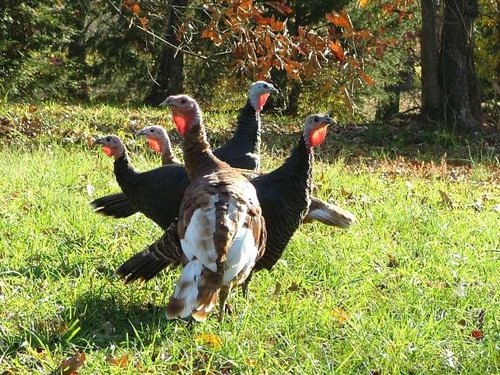 Raising organic turkeys
on pasture grass
Raising organic turkeys
on pasture grassFeeding Adult Turkeys
Protein is important to all poultry but especially so for turkeys who have a higher need for protein than chickens. By allowing your turkeys to free-range they will still need a good organic commercial feed in addition to what they can catch for themselves.
If you are keeping a few turkeys, then you should only buy enough feed for 2-4 weeks to prevent feeding your birds rancid feed as the oils in the feed go off very quickly. Having good feed for young poults is always wise. Keep your feed in a cool, dry place. Feed should be given to the turkeys on a free-choice basis available at all times.
How Much to Feed Turkeys?
24 turkeys need at least half an acre (2, 025 sq. m) of good pasture such as alfalfa or ladino clover. One caution with allowing your turkeys access to too much alfalfa is that the alfalfa can cause the meat to taste bitter. So a mixed pasture is better. Winter wheat is also good as long as it is at least 6 inches tall before your turkeys are allowed access. The best forages are full of legumes and have a good mix.
By allowing your turkeys to forage they will eat as much as 25% less of the commercial feed than if you didn't allow them to forage. When you look at the rising cost of feed, it is a win-win situation all round! Just make sure that if they are out in pasture they also have some shade to get out of the mid-day sun.
If
you pasture your turkeys these fields will need to rest over the
winter, as well as using additional fields for rotation to minimize
disease and damage to the pasture. During the season you may also need
to reseed to keep your pastures in top condition.
Feed your turkeys plenty of greens,
especially lettuce which they love. You can give your turkeys lettuce
three times a day, if you wish.
If your milk goes off in the fridge –
feed it to your turkeys. They will love you for it!
When keeping turkeys be mindful that they also need a constant supply of grit. Like chickens, they need the grit to help breakdown the food in their gizzard. Poults, even from 2 days old should be given grit as part of their diet.
Water and Raising Turkeys
Turkeys also need a source of clean water that is changed every day and lots of it to prevent choking in turkeys. Turkeys drink the most water during the first 4 hours of the day so make sure that there is enough water around, especially if the weather is hot.
Adult turkeys drink a lot of water. 5 turkeys can drink 1 gallon of water, per day.
They should also have access to charcoal, if it is required.
Feeding Management Table for Raising Turkeys
A turkey feeding management table that tells you how much feed to give your turkeys from poult to adult.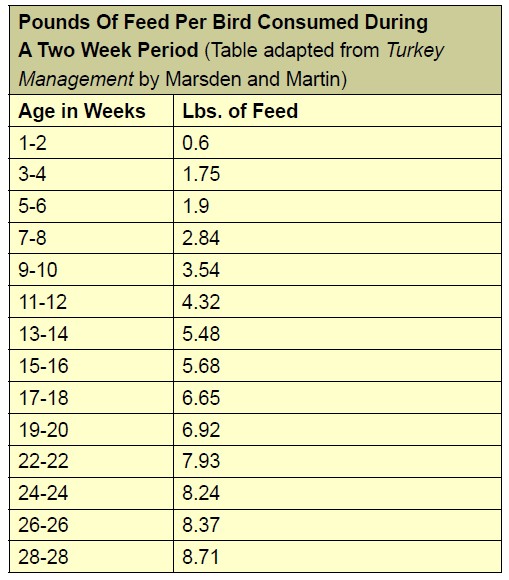
Raising Turkeys and Housing
When raising turkeys be aware of their big size, especially their potential size if you buy them when they are small. You will need to find a clean, dry space that can be locked up at night to protect them from foxes and other predators. You will also need to house them for at least 4 months before slaughter time.Raising turkeys in an area that leads
to over-crowding will bring disease, sick turkeys and ultimately death
to your flock. Keeping the housing dry and clean will minimize this
risk.
Raising Turkeys for Eggs
For those turkeys that are going to lay eggs, allow large nests at least 20-24 inch square so that they don’t damage their tails. The nesting boxes should be filled with soil that has been stamped down to form a solid surface and then lined with good hay.Turkeys can usually set around 17-20
eggs. If you have a chicken to set the eggs due to her size she can
only set about 10 eggs successfully. Maize, barley and rice are good
grains to feed a turkey while she is nesting.
Turkey eggs take about 28 days to hatch
and on the 9th day they can be examined for fertility by candling. If
the turkey eggs are fertile they will be cloudy with a dark speck
towards the large end. If the turkey eggs are not fertile, they will be
clear.
If the egg hasn't opened by the 29th
day, then chip open a small piece of the shell at the end and see if
the skin is white. If it is, then the chick is still alive. If the skin
is brown, the chick has died.
Raising Young Turkey Poults
As soon as the young birds have hatched
given them some chopped hard-boiled eggs with a scattering of dried
breadcrumbs, a sprinkling of mustard powder and some ground ginger.
You can also feed them some warm,
boiled rice. Young turkeys don’t seem to maintain their body
temperature very well for the first 6 weeks, and so by feeding them
something warm this will help in this regard.
After they are 4 days old chop up some onions finely and mix with their soft food. You can feed them oatmeal and rice. Boil some milk and let it cool and that can be added to the food but don't mix it too wet.
Newly hatched turkeys need a very high protein diet, this is why giving them egg is a good way to start. They also need amino acids and vitamins that will give your poults good feather growth and strong bones.Adding vitamins to the water of young poults from day 5 - day 10 is advisable, with Vitamin C and Vitamin E being the most important. Probiotics for good gut care in the form of yogurt is very important too. For my chickens I add a clove of garlic and parsley to the yogurt, and you can do the same for turkeys.
Along with the vitamins in the water, which should be given fresh every day, and troughs disinfected once a week, add 1-2 tablespoons of Cider Vinegar per gallon of water. This not only aids in your turkeys overall health, acting as a tonic, but it also helps with keeping coccidiosis in check. Adding Cider Vinegar to the poult's drinking water can be started from day 1.
The hoppers should be raised as the turkeys get bigger. Poults up to the age of 6 weeks should have 2-3 linear inches of feeding space at the hopper, per poult. Those that are mature at more than 6 weeks old will need 6 linear inches of feeding space. A 5-foot feeder hopper should be enough for 20 birds as long as they have access to the hopper from both sides. See how much to feed your poults below with the help of the feeding management table.
With regards to water 50, day-old poults will drink about a gallon of water a day.
Diseases and Pests with Raising Turkeys
Blackhead in Raising Turkeys
Turkeys are pretty hardy but they do get diseases from time to time. One such disease is blackhead or histomoniasis, a parasite that lives in earthworms that have eaten caecal worms from poultry droppings containing the parasite.You will know when your turkeys have
blackhead when you see bright yellow droppings around. Other symptoms
of blackhead are droopiness, diarrhea and weight loss. If blackhead
goes untreated your turkeys will die.
Prevention is always better than cure,
and one way of preventing blackhead is to leave a field that you have
had turkeys on to rest for at least 12 months before you put them back
on that land. If you have been running chickens on that land and you
want to follow with turkeys, you would be best to wait up to 3 years
before doing so. Long times, I know, but exercising patience is better
than losing your flock.
By waiting this period you are then
giving enough time to pass to break the cycle of the parasites and
therefore ensuring that you do not re-infect your stock.
Coccidiosis in Raising Turkeys
Like chickens, turkeys also get coccidiosis. Again, cleanliness when raising turkeys is the key in cutting down on the chances of getting this fatal poultry disease.Lice in Raising Turkeys
Turkeys get lice, just like chickens.
Therefore
make sure that you treat them regularly with a lice powder that is
suitable for raising organic turkeys.
Tips for Raising Healthy Turkeys
In order to raise healthy turkeys you need to give them a probiotic and Vitamin B. Both of these can be found in homemade yogurt or commercially bought yogurt that contains live cultures.For 24 turkey poults give them 1/2 cup
(120ml) of yogurt stirred through 1 quart (1 liter) of starter
crumbles. Feed this to your poults first thing in the morning before
feeding them anything else. When they have eaten this refill the feeder
with plain crumbles for the rest of the day.
If you want to keep down internal parasites it is also worth chopping
up a couple of cloves of garlic and adding it to the yogurt mash at
least twice a week.
For raising young poults you can feed
them on
homemade brown bread soaked in milk, or sour milk with a dash of red
pepper. This will give them an excellent start.
When your poults reach 4-5 weeks of age they will need more care,
especially the females. Give them beaten raw eggs in some milk for
additional protein. Once they pass this mark you will see rapid growth
in your turkeys.
Don't let your turkey poults out of their house if it is raining or there has been a heavy morning dew. Let the grass be thoroughly dry, otherwise they could catch cold. Keep them away from the wet until they are at least 7-8 pounds.
Slaughtering Turkeys
for Meat
So avoid bruises from strong wings and
scratches from lethal claws by approaching your turkey with caution!
The best time to catch a turkey is when they have been herded into the
barn and it is dark. Take an accomplice with you who can hold the torch
while you grab the turkey with one leg in each hand and quickly
transferring both legs into one hand while you clasp the wings together
as quickly as possible.
Turkeys for meat are ready for slaughter at 24-28 weeks for standard breeds and 16-20 weeks for broad-breasted breeds. When your turkey weighs 20 pounds, not all of that weight will end up as meat. By the time you have dressed your turkey it will only weigh 80% of that.
We advocate raising turkeys organically to give you the best quality meat available.
Can you Add to our Information on Raising Turkeys Here?
We have lots of pages where you can contribute to throughout this homesteading website. We love hearing from our readers, and hope you will be one of those we hear from too. Look around our homesteading website. If you have more information to add or a question you would like to ask, please submit them. All you need to do is type and submit. We will do the rest!
Leave a Comment
Do you have anything that you would like to add after reading this page? We would love to hear your thoughts. If you can add additional information to what has been written here you will be adding value to the website! No need to have any special skills - just type and submit. We will do the rest!
Our Free Monthly Homesteading Newsletter
Please check back from time to time for new updates to our homesteading website or get our latest news via our free monthly homesteading newsletter. Sign up below. There is always new information being added, almost on a daily basis, just for you! We hope to see you again!Don't miss out on our latest news and articles. Sign up for our free monthly e-zine!
Go from Raising Turkeys back to Farm AnimalsGo to Self-Sufficient Living
Go back to Countryfarm Lifestyles and Homesteading
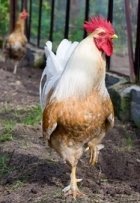
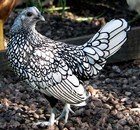

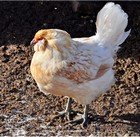


New! Comments
Do you have something of value to add? Leave me a comment in the box below.